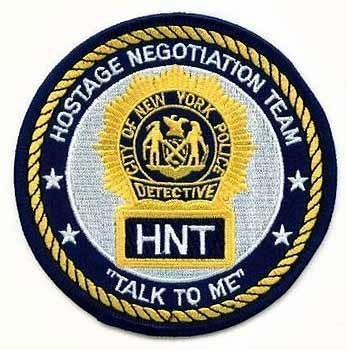IN THIS CORNER: FIRST RESPONDERS
By Lynne Kinnucan
What do you do when you’re the first officer to arrive at
the scene of a crisis? The first few minutes after an officer’s arrival at the
scene can have a critical impact on how the situation evolves.
While there is
no step-by-step process that fits every situation, there
are three objectives that should be primary during your first moments: stay
safe, calm the subject and assess the situation. Below are five guidelines suggested
by experts for first responders.
1.
Stay
safe. Approach the scene cautiously.
2.
As
much as possible, isolate the scene and contain it. Clear the area of members of the public,
including family members. Do not ask family members to talk to the
subject. This is precarious at best, and
can be dangerous.
3.
Make
an assessment of the area and note any details that might be helpful to the arriving
negotiation/tactical team such as the time, date, the parties at the scene,
nature of the call, and any other pertinent information.
4.
Do
not start negotiating. Listen
for indications of the subject’s emotional state, but do not try to
problem-solve or explore motives. It is not your job to fix the situation. You
are there to contain, isolate, gather information and assess.
5.
If
you can engage the subject in conversation, he is less likely to pay attention
to violent acts.
a.
Use
active listening to gain information and calm the subject.
b.
Keep
the dialogue simple and direct. Identify yourself and why you are here. “This
is Sergeant Greenstein and I’m here to help.”
c.
Do
not say “no”.
d.
Do
not make promises.
e.
Pay
attention to not just what is being said but how: pace of speech, increasing
loudness or softening of tone, phrases and words that indicate resistance or
openness to discussion, etc. Use active listening skills such as encouragers
(mm hmmm, I see, sounds you’re pretty upset, etc.)
Statistics show that on average, more
than 90% of all hostage and barricade situations are successfully resolved
through communications. The best tool you have is active listening and open
communication, and the information you garner in these first few minutes can
provide invaluable over the course of the crisis negotiation.
Not every agency has the
resources to train a first responder, but ongoing training in active listening skills
is one of your best preparations for this critically important role.
Department of Justice
FBI Compendium
Policeone.com
Mindsetdaily.com
Policeone.com
Mindsetdaily.com



